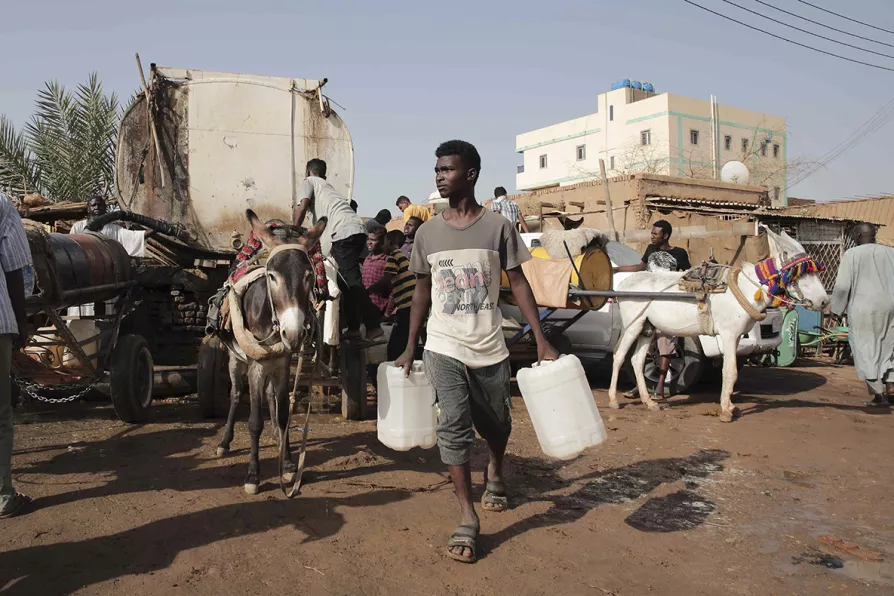From London’s holly-sellers to Engels’s flaming Christmas centrepiece, the plum pudding was more than festive fare in Victorian Britain, says KEITH FLETT

 People gather to collect water in Khartoum, Sudan, May 28, 2023
People gather to collect water in Khartoum, Sudan, May 28, 2023
THE Sudanese Communists Party (SCP), since its foundation in 1946, has adopted a peaceful and democratic road to achieve the objectives of national democratic revolution in Sudan. Peace and democracy are always interlinked in its struggle and programmes.
During civil wars in Sudan (twice between South and North Sudan, the war in Darfur, the war in the eastern Sudan, and current conflict between the Sudan Armed Forces (SAF) and the Rapid Support Forces (RSF), the SCP position was against war and for peaceful resolution and settlement through civil democratic means.
In facing the several military regimes and dictatorships, the Sudanese Communist Party always adopted peaceful means of resistance, depending on organising and mobilising the masses through demonstrations, political strikes and civil disobedience.

ROGER McKENZIE shines a light on conflicts in Sudan and Nigeria, where Western powers are intent on laying claim to valuable resources necessary for market dominance

As the UAE-backed RSF carries out drone strikes on humanitarian infrastructure in war-torn Sudan, the US sells more weapons to the UAE, writes PAVAN KULKARNI

Keir Starmer’s £120 million to Sudan cannot cover the government’s complicity in the RSF genocide or atone for the long shadow of British colonialism and imperialism, writes CLAUDIA WEBBE











